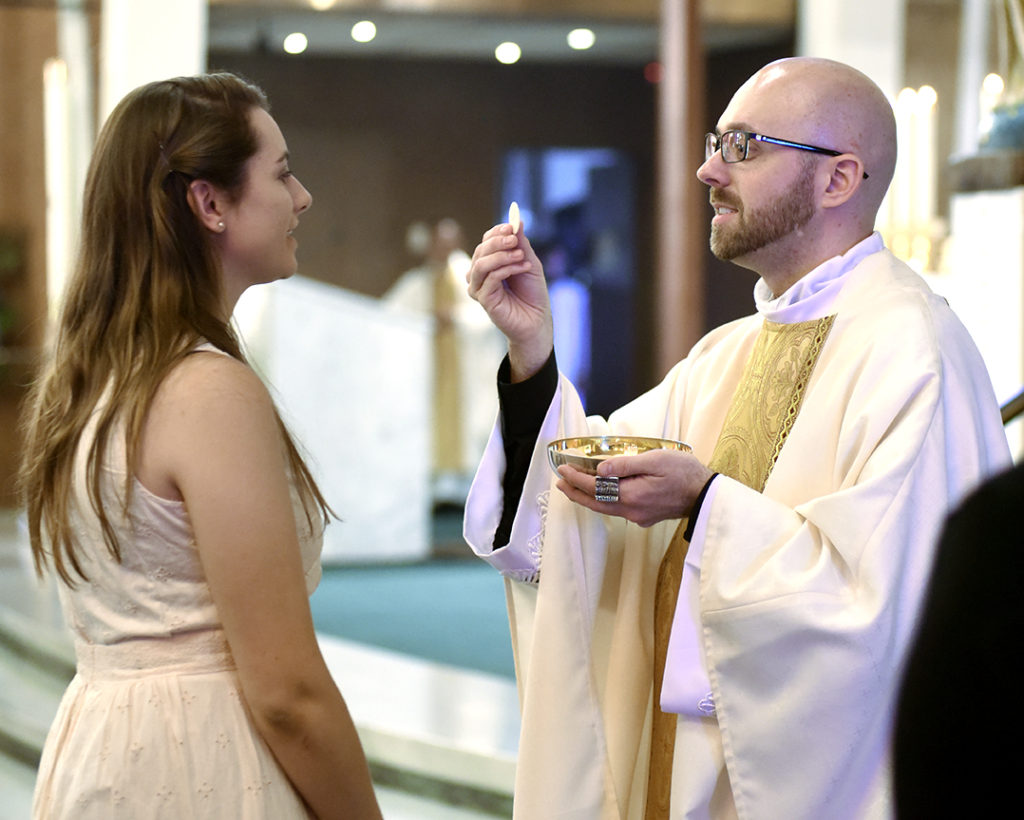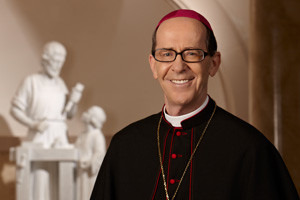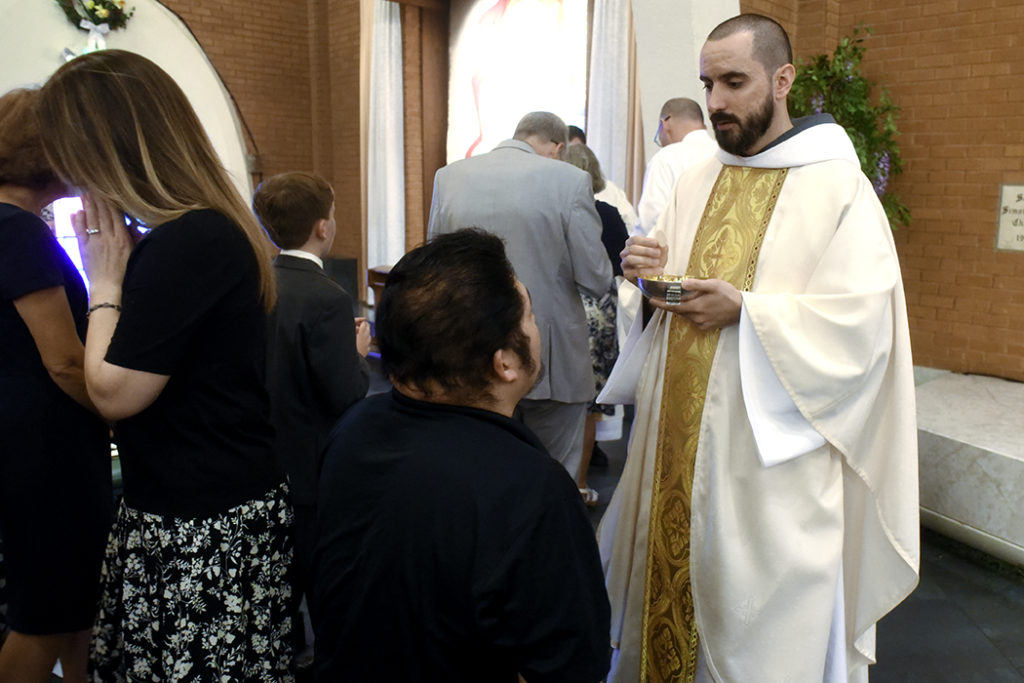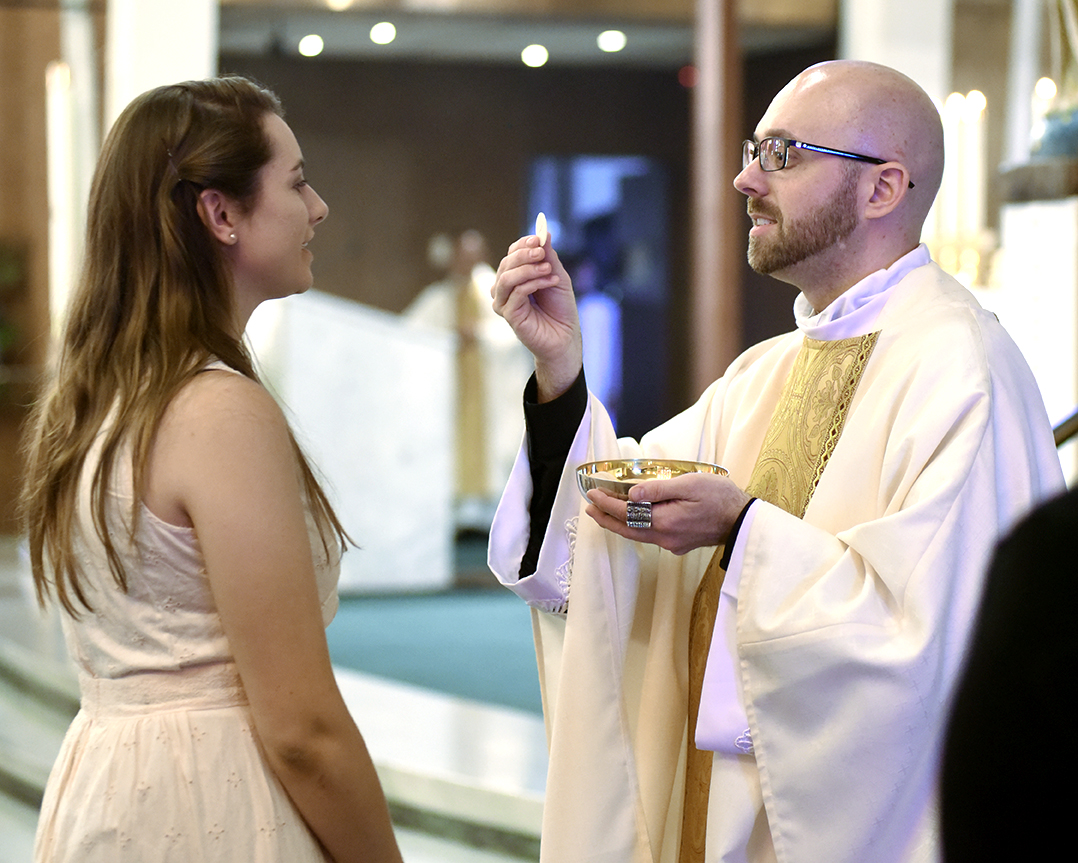
Holy Yet Needing Purification
Fifth in a Series
Having already addressed certain aspects of the scandals that have so hurt the Church over recent decades, I wish now to consider the question of what can be done. I hope that this will inspire appreciation for the good that is being done and your faithful engagement in further purification and strengthening of our local Church.
With the Wisdom that Comes from God
Proverbs tells us that “when pride comes, then comes disgrace, but with humility comes wisdom” (11:2). To make genuine progress, we must begin with humble and forthright acknowledgment of the evil that has been done by those who had a sacred obligation to protect and serve children in our parishes and schools. As was pointed out by Pope Benedict XVI eight years ago, our approach must exclude any tendency “to favor the clergy and other authority figures; and a misplaced concern for the reputation of the Church and the avoidance of scandal” instead of urgent action to protect children from harm and risk of separation from Our Loving God (Cf. 2010 Pastoral Letter to the Catholics of Ireland).

In the last several years, Church leadership, with the guidance of experts in fields such as psychology and law enforcement, have taken wise steps in ways that have led to the protection of young people and vulnerable adults at our parishes and schools. This has led to the further development of comprehensive screening processes for clergy, religious, seminarians and employees who have any contact with the young and vulnerable. For those entering formation for the clerical life, the screening is far more extensive and includes in-depth psychological testing, background checks and a series of interviews and evaluations that happen over a period of at least seven years. There is wisdom in the standards of the Church, and we have sadly seen the consequences of not holding to such standards.
Even for volunteers, the screening application includes applications, interviews, a code of ethics and reference and background checks. In our diocese, this amounts to about 30,000 adults annually. This training helps all involved in ministry to recognize and report inappropriate behaviors. It includes formation on healthy boundaries and policies to maintain safe environments; upholding a culture of safety; increasing awareness of the signs of grooming and/or child abuse; and appropriate interactions between adults and minors.
In addition, we are blessed to have the assistance of our Diocesan Review Board that consists primarily of lay professionals established to review and make determinations regarding any allegations against clergy. The makeup of this board includes a law enforcement officer, a licensed psychologist, a judge, a medical professional, a teacher and a pastor.
With Power that Comes from God
Such problems and crises must not be over-spiritualized. At the same time, we cannot be so foolish as to believe that the deceiver Satan is not here lurking and seeking opportunity to further divide and wound the Body of Christ. For this reason, Apostles like Paul and Peter make strong statements in this regard. St. Paul writes: “the sun must not go down on your wrath: do not give the devil a chance to work on you” (Eph 4:26f). St. Peter writes: “Stay sober and alert. Your opponent the devil is prowling like a roaring lion looking for someone to devour. Resist him, solid in your faith” (1 Pt 5:8f). No problem can be solved with mere human means. After all, the Lord tells us “… apart from me you can do nothing” (Jn 15:5). We must work with the grace and strength that comes to us from Christ our Lord.
What must be done here in the Diocese of Phoenix, or wherever reform within the Church is needed, includes something far deeper than the practical decisions. What must happen is conversion. Scandals are the manifestation of a crisis of faith. Therefore, scandals will be healed by strong faith, spiritual courage and heroic confidence in our Lord.
For this reason, our Holy Father, Pope Francis, reminded us in his open letter in the wake of these scandals that we “insist more upon prayer” (Letter to the People of God). He stated that by “an attitude of prayer and penance, we will become attuned as individuals and as a community to this exhortation, so that we may grow in the gift of compassion, in justice, prevention and reparation.”

In response to this call to prayer and penance by Pope Francis and others, there was a group of men in our diocese who decided to be “good stewards of their anger.” Rather than turning away from the Church or giving in to despair, they joined together for 90 days of fasting from many of the comforts of daily life such as unnecessary technology, snacking between meals and other modern conveniences we take for granted. Along with this, they committed to daily prayer, exercise and intentional brotherhood as they made these ascetical offerings. What these men discovered was remarkable. Not only did they make these offerings for the reparation of wrongs done in the Church, they found that these made them better men of God. They were more attentive to their families, more available to their wives and children and freer from all the distractions that keep us from being truly present to God and neighbor.
St. Paul writes: “if one member suffers, all suffer together with it” (1 Cor 12:26). These words also imply that if one member seeks greater conversion and union with Jesus Christ, all members will benefit. As the purifying and strengthening power of the Holy Spirit in us brings about our conversions, the Body of Christ is purified and strengthened. Being united to Christ in Baptism, we know that if one is seeking reparation and makes offerings in reparation, the body will indeed benefit.
Here I wish to encourage you never to undervalue your private hidden prayer to the Lord, your quiet time in Adoration, your worthy, reverent and frequent reception of Holy Communion and your practice of the Sacrament of Confession. These actions in themselves are acts of love for Jesus our Lord who is present to us in the suffering of these scandals.
In these ways, we are tapping into the power that comes from Christ. As I have done in previous columns, I again ask for your daily prayer for those of us who are called to minister to you in these times. I also ask your daily prayer for vocations: ask the Lord of the Harvest to send laborers into His vineyard. Here again, I especially wish to thank those members of the Serra Club who offer daily prayers for priestly and religious vocations.
Together Let Us Go Forth ~ Juntos Sigamos Adelante
Finally, it is important to remember that this is not a time for fearfulness or for shrinking back from the Good News that Jesus offers us and asks us to share with others. Keep in mind the witness of the Apostles. Just after key members of the Church, clergy (i.e. the Apostles appointed by Christ Himself) acted in a scandalous way, the Church did not back down from her mission. Judas betrayed, Peter denied, Thomas doubted and many others abandoned our Lord. Nonetheless, as the power of the Holy Spirit came, the remaining Apostles did not allow these sins to hold them back from their mission to evangelize. In fact, this was a time of exceptionally powerful evangelization.
Over the past few years, we have been engaged in a campaign that focuses on discipleship and evangelization under the title “Together Let Us Go Forth ~ Juntos Sigamos Adelante.” Little did we know how important these words would be in our current context. As most of the Apostles could not be held down by their own past failings or even the sins of those who betrayed Jesus or apostatized, we must not be held back from going forth and proclaiming Jesus Christ to this generation. In no way does this imply ignoring grave sin: rather we must go forth mindful of the reality of sin and ever diligent to protect the Church from it.
I leave you with the words of Chris Stefanick, a courageous lay evangelist of our time who said, “I’ll never let Judas drive me away from Christ. In every crisis in the Church, God sends saints as the solution. This is a time of profound crisis. God is calling us to be saints.” These saints, by Christ’s power, can be you and me.







